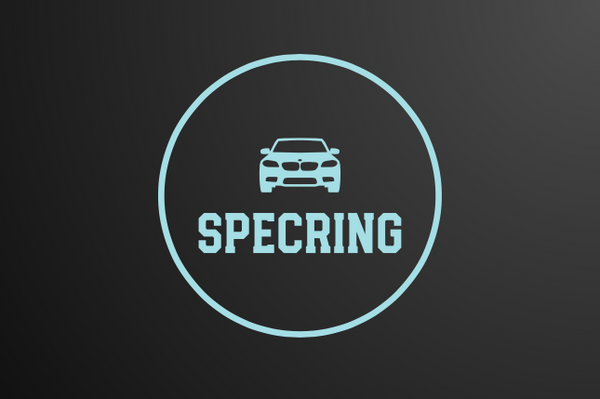As a BMW owner, you take pride in your vehicle’s performance and aesthetics, especially when outfitted with high-quality carbon fiber parts. From aggressive front bumper lip kits to stylish rear diffusers and aerodynamic spoilers, carbon fiber upgrades enhance both form and function. However, with the arrival of cold weather, many BMW enthusiasts wonder: Does the drop in temperature impact the durability, performance, or longevity of carbon fiber components?
The short answer? Cold weather has minimal effect on carbon fiber itself, but certain conditions can influence its performance and lifespan. Understanding these factors can help you protect your investment and maintain peak performance year-round.
Understanding Carbon Fiber’s Cold Weather Resilience
Unlike metals, which expand and contract significantly with temperature changes, carbon fiber is highly resistant to thermal expansion. This means that cold weather alone won’t cause carbon fiber parts to crack, warp, or degrade. However, temperature fluctuations, road debris, and winter road treatments can introduce challenges.
Key Properties That Help Carbon Fiber Withstand Cold Weather:
- Low Thermal Expansion: Unlike aluminum or steel, carbon fiber doesn't contract significantly in cold temperatures, preventing stress cracks.
- High Tensile Strength: Carbon fiber retains its strength even in freezing conditions, making it reliable for structural components.
- Lightweight Efficiency: Even in cold weather, carbon fiber parts contribute to better handling and fuel efficiency.
However, while the material itself remains stable, the resin or clear coat used in carbon fiber parts can be affected by extreme cold. Understanding these effects can help prevent unnecessary wear.
Potential Cold Weather Concerns for Carbon Fiber Parts
1. Clear Coat and Resin Brittleness
Carbon fiber parts are typically coated with a protective resin or clear coat to enhance durability and aesthetics. In freezing temperatures, the resin can become more brittle, increasing the likelihood of chipping or cracking from minor impacts.
2. Road Salt and Chemical Corrosion
Winter roads are often treated with salt and de-icing chemicals, which can gradually degrade the clear coat and lead to oxidation in exposed areas. While carbon fiber itself won’t corrode, damaged clear coats can allow moisture and contaminants to compromise the finish.
3. Increased Risk of Impact Damage
Winter roads can be rougher, with potholes, frozen debris, and ice chunks increasing the likelihood of impact damage. A direct hit to front lip spoilers, side skirts, or diffusers can lead to fractures or chips.
4. Adhesive Performance in Cold Weather
Many carbon fiber parts use adhesive mounts (especially mirror caps and front grilles). Adhesives can weaken in extreme cold, potentially leading to loose or detached parts if not properly installed.
How to Protect Your BMW’s Carbon Fiber Parts in Winter
1. Apply a High-Quality Ceramic Coating
A ceramic coating adds an extra layer of protection against road salt, moisture, and debris. This helps maintain the clear coat’s integrity and reduces the risk of oxidation.
2. Avoid Harsh Ice Scrapers and Pressure Washers
When clearing snow and ice, avoid scraping carbon fiber surfaces directly. Harsh scrapers or high-pressure washers can cause micro-abrasions in the clear coat.
3. Regular Cleaning and Inspection
- Wash your BMW frequently in winter to remove road salt buildup.
- Inspect for any cracks, chips, or delamination in the resin coat.
- Use pH-balanced car shampoos to maintain the finish.
4. Use a Garage or Protective Cover
If possible, store your BMW in a garage during extreme cold to limit temperature fluctuations. For outdoor parking, consider a high-quality car cover to protect against frost buildup.
5. Reinforce Adhesive-Mounted Parts
For mirror caps, front grilles, and spoilers, ensure adhesives are properly cured before exposure to extreme cold. If necessary, use 3M automotive-grade adhesives rated for low temperatures.
Recommended Cold-Weather-Resistant Carbon Fiber Parts from Spec-Ring
Looking to upgrade your BMW with cold-weather-resistant carbon fiber parts? Here are top-rated products available at Spec-Ring:
1. BMW E90 E92 E93 M3 Pre-Drilled Front Lip Spoiler
- Why it’s winter-ready: Durable clear-coated finish for added protection against salt and moisture.
2. BMW E92 Carbon Fiber M Performance Diffuser
- Why it’s winter-ready: High-quality resin formulation that maintains structural integrity in freezing temperatures.
3. BMW F80 M3 M4 V-Style Carbon Fiber Spoiler
- Why it’s winter-ready: Strong adhesion and UV-resistant coating to prevent cracking.
4. BMW E90 E92 E93 M3 Rear Bumper Extensions
- Why it’s winter-ready: Rigid construction with added clear-coat protection.
All these parts are available at spec-ring.com, ensuring quality and durability for your BMW—even in winter conditions
Winter doesn't have to mean sacrificing style or performance for BMW enthusiasts with carbon fiber upgrades. By understanding the potential effects of cold weather and taking proactive steps to protect your carbon fiber parts, you can enjoy the best of both worlds—stunning aesthetics and uncompromised performance.
For high-quality cold-weather-resistant carbon fiber parts, visit spec-ring.com and upgrade your BMW with confidence.
What’s your biggest winter concern for carbon fiber parts?
You can reach out to us for expert advice! Contact us
Want to know more about us? Click here

